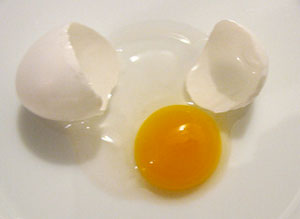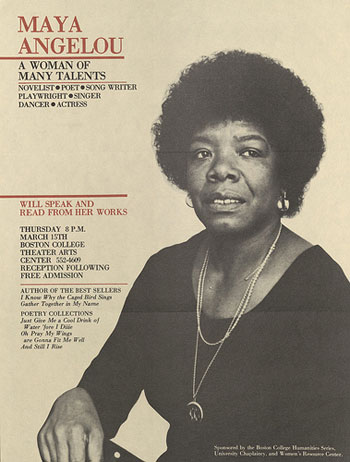
Source: cracked egg, kiss the sun and walk on air, Flickr
In this section, you will read the poem “Still I Rise” by Maya Angelou, an acclaimed American poet. Angelou has also been a singer, dancer, actress, composer, and Hollywood’s first female African-American director, but she is most famous as a writer, editor, essayist, playwright, and poet.
As a civil rights activist, Angelou worked for Dr. Martin Luther King Jr. and Malcom X. In 1975, she was described in Southern Women Writers: The New Generation as being “not only . . . a spokesperson for blacks and women, but also for all people who are committed to raising the moral standards of living in the United States.”

Source: Maya Angelou, Burns Library, Boston College, Flickr
Still I Rise
By Maya Angelou
You may write me down in history
With your bitter, twisted lies,
You may trod me in the very dirt
But still, like dust, I’ll rise.
Does my sassiness upset you?
Why are you beset with gloom?
’Cause I walk like I’ve got oil wells
Pumping in my living room.
Just like moons and like suns,
With the certainty of tides,
Just like hopes springing high,
Still I’ll rise.
Did you want to see me broken?
Bowed head and lowered eyes?
Shoulders falling down like teardrops,
Weakened by my soulful cries?
Does my haughtiness offend you?
Don’t you take it awful hard
’Cause I laugh like I’ve got gold mines
Diggin’ in my own backyard.
You may shoot me with your words,
You may cut me with your eyes,
You may kill me with your hatefulness,
But still, like air, I’ll rise.
After closely analyzing the poems in this lesson and writing your own poem, you can see that a great deal of thinking goes into understanding the literary form we call “poetry.” You can also see that making inferences to uncover a poet’s message helps you better understand a poem.